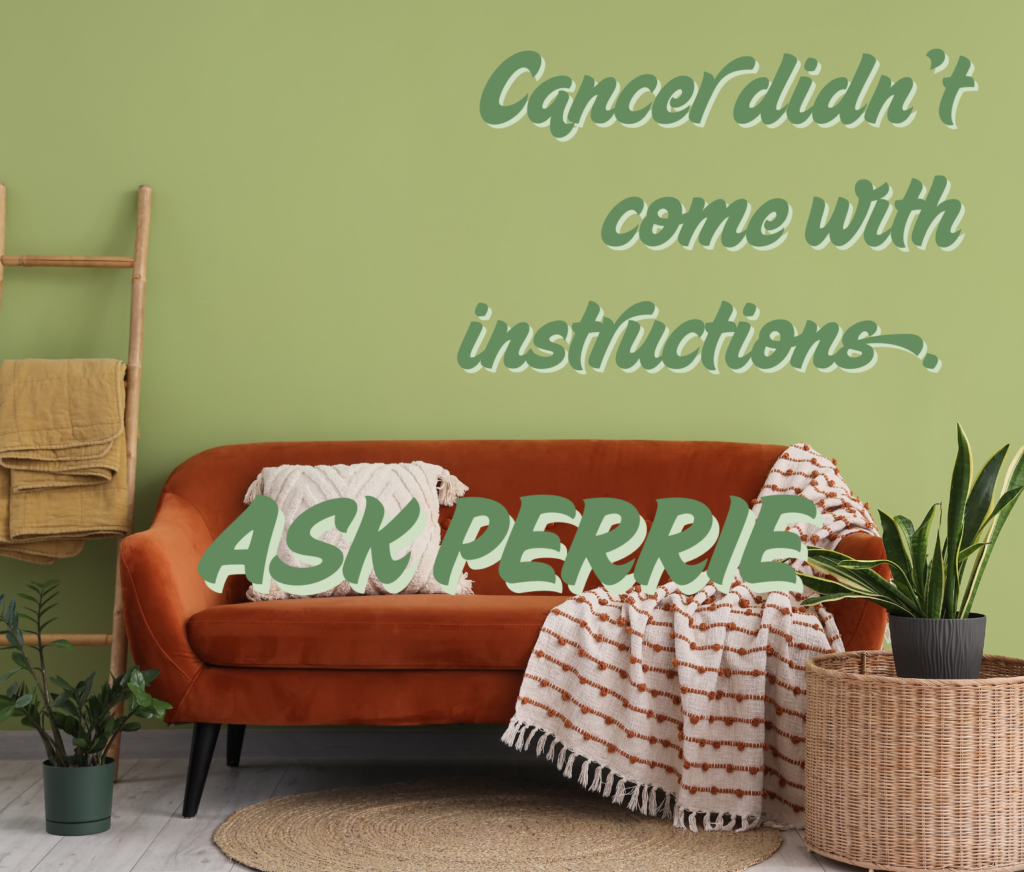Welcome to the comments and discussion of the Young Adult Cancer Book Club! We are reading Everything Happens for a Reason and Other Lies I’ve Loved by Kate Bowler.
Let’s get started!
Chapter 1: Diagnosis
Commentary by Lauren H.:
“I thought this life was only getting started, but now I am supposed to contemplate it’s sudden conclusion.”
In the first chapter of Kate Bowler’s Everything Happens for a Reason (And Other Lies I’ve Loved), aptly titled “Diagnosis,” perhaps no line will be more relatable to young adult cancer patients and survivors than the one above. Bowler writes in this chapter of how her life seemed to be aligning on a positive trajectory: a husband she loves, a dream career, and a young child. Until suddenly it’s not. With one phone call, after months of doctors not finding the cause of her stomach pain, her entire view of her existence is shifted. She has cancer, and it’s everywhere.
Confession: this is the first cancer memoir I’ve read since my own diagnosis a year and a half ago. I’ve avoided the genre somewhat purposefully, worried about the impact on my own emotional state. But I had watched Bowler’s TED Talk and seen a recent interview about her story, so I figured I’d be able to get through this chapter fine. Yet when I pulled out the book to read while in the infusion chair last week, I found myself tearing up several times. With her honest writing style and descriptions of her physical, mental, and emotional state, I found myself empathizing with her situation—while also flashing back to my own diagnosis story.
When Bowler is in the hospital room with two of her friends, preparing for surgery, she says aloud, “I just don’t know what to do.” Her friend Beth responds, “Die.” This brutal honesty was striking, and as a reader, took me aback. It is, of course, the thing on all of our minds when we are told we have cancer, especially Stage IV cancer. But often, it is something we dance around, that we try instead to focus on the positive…I am going to beat this disease, I am going to beat the odds. And to have someone else state this outcome so simply, so directly, can be so powerful. It’s not what we want to hear, but it’s perhaps what needs to be said aloud.
Commentary by Jessica K.:
I love that this book is steeped in spirituality. Even though I do not practice Christianity, I am highly spiritual. My spirituality helped get me through last year, when I was undergoing treatment for Stage 2 Breast Cancer at age 29.
At first, I was a bit annoyed that the author assumed that all cancer patients have a “why is this happening to me” moment. (In her words, “Why? God are you here? What does this suffering mean?”). For me, I knew almost instantly why I got cancer and what it meant. I got it because I could handle it. Of all the people I knew and of my immediate family, I was in the best shape (mentally, emotionally, and physically) to bear this burden. I was best equipped for this enormous challenge.
I also needed to learn some important life lessons. Until my experience with breast cancer, I didn’t really know how to accept help from others. And, most importantly, I didn’t trust myself fully. I’ve been called intense more than once, so it’s no surprise that I needed to get cancer to learn these life lessons (which others apparently learn under regular circumstances). Going through treatment while continuing to work full time led me to realize that I can handle pretty much anything, and I really can trust myself no matter what life throws at me. I learned these things from my cancer, and for that I am grateful.
Getting back to being annoyed with the author. I thought about this some more. While it was true that I didn’t have those “why me” thoughts when I was diagnosed, or even during treatment, I definitely had them after. When everything was done and my body was wrecked from being pumped with poison and burned every day with radioactivity, I was tired and I was pissed. I was mad that the people who looked at me didn’t know that I was a cancer patient anymore. I was mad because I wasn’t getting the special kindness from strangers that I got when I was fully bald (even if it was just pity – who doesn’t like it when people hold doors for you, or just smile?).
I was really mad that I had gained 20 pounds and now had to rebuild my body. I had struggled with my body for years and finally been in a great place when I was diagnosed. This one really messed me up. “It’s not fair!” “It’s not my fault that I could only eat soup and bread for 6 months!” “This @#$%^ sucks.” All of these things were true, and I needed some time to wallow in my self-pity.
It took me a while to figure out ways to be grateful, rather than angry or sad, but eventually, I got there. I am so grateful that I have the opportunity to rebuild, where so many others do not.
One last thing, because I was supposed to write about Chapter One, which is called Diagnosis. Other than the fact that our diagnoses were really different (she had a lot of symptoms leading up to hers, which must have been terrifying, whereas I thought the worst thing I’d have coming out of my routine OB/GYN appointment was an STD, if anything), we handled the news the same way.
I didn’t know that other people handled their diagnoses the same way that I did, and that made me feel more normal. I thought pretty much everyone went home and cried about it, or took time off to digest the news. And, while I’m sure there are innumerable patients who did just that, I loved reading about the author’s persistence and ability to attack her Cancer ‘to-do list’ just like any other ‘to-do list.’
Commentary by Miranda M.:
We begin the book by learning how Kate quickly incorporates a coping technique for the crippling pain she feels numerous times a day. It is a testament to how we often power through big challenges. Even when she is told of her diagnosis over the phone, she thinks of others. The words that she is compelled to repeat are “But, I have a son.” Yet, through the daunting days of her initial diagnosis, others are there for Kate too. Her friend Beth has the courage to answer the spiraling questions of what the future contains, with one simple loaded word: Die. Seemingly harsh, it was what helped snap the present moment into focus.
Join in next Monday for the comments and discussion on Chapter 2: Object Lesson!
—
Thanks for joining us for Chapter 1: Diagnosis of Everything Happens for a Reason and Other Lies I’ve Loved by Kate Bowler! Join in next Monday for the next chapter!
We will talk about a few chapters each Monday until the book is done. If Monday happens to be a holiday, then the post will publish on Tuesday. Once we finish the book, we’ll use one more Monday to talk about general feelings from the book and anything else you’d like to discuss. We’ll also have a video chat book club discussion at the end! Join in, in the comments every week! Also, there will probably be spoilers so read along with us!
Excited about the young adult cancer book club? Have any suggestions for future reads? Let us know!








